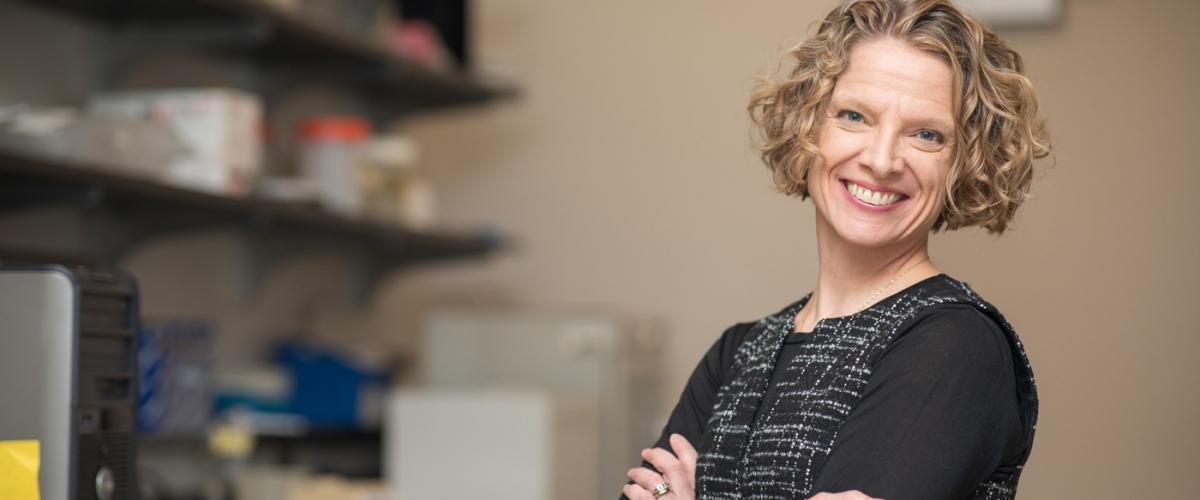Researcher Spotlight: Sarah Cusick
The CGHSR Researcher Spotlight features global health researchers from the University of Minnesota and its partner sites.
UMN Researcher: Sarah Cusick, PhD, Medical School Department of Pediatrics
Research Sites: Mulago Hospital and the Joint Clinical Research Centre, Kampala, Uganda
Dr. Sarah Cusick is an available mentor for the CGHSR Scholars Program. In this researcher spotlight, she answers a few of our questions on her research and experience with global collaborations.
Q: What do you study?
A: I study the interaction of nutritional deficiencies, infection, and neurobehavioral development in children living in resource-poor settings. To date, my research has focused on optimizing iron status in children who also have malaria or HIV. Concurrent infection makes absorption of dietary iron and use of this iron by the developing brain difficult, yet iron deficiency and infection coexist in pediatric populations in much of the world.
Q: Why do you think this research is important?
A: Iron deficiency is one of the top three causes of limited developmental potential in children worldwide. Children in sub-Saharan Africa alone experience more than 300 million cases of uncomplicated malaria each year. Given the significant epidemiological and geographical overlap of these conditions, identifying safe and effective strategies for providing iron to children who also have malaria or other infection promises to help millions of children achieve their full developmental potential.
Q: Where do you conduct research?
A: I am currently conducting studies at Mulago Hospital and the Joint Clinical Research Centre, both located in Kampala, Uganda.
Q: Why is it important for you to conduct research at international sites?
A: Although nutritional deficiencies certainly exist in the United States, more than one of out every three children younger than 5 years of age living in sub-Saharan Africa is iron-deficient and thus at risk of neurodevelopmental delay. Diseases such as malaria that inhibit iron absorption have been eradicated in the United States but affect hundreds of millions of African children each year. Thus, the complex relationship of nutritional deficiency and infection is best studied where both conditions are prevalent and co-occur in young children.
Q: What are examples of past student involvement in your research?
A: In the past, I have mentored students who are conducting their own independent research projects in global settings as well as students whose work is embedded in one of my larger studies. Current trainees have embedded thesis questions into existing studies and also help with data collection and cleaning, protocol and SOP preparation, and database set-up, both onsite and here at the UMN.
Q: Who are your international collaborators and will they act as mentors to any student trainees or research assistants?
A: I work closely with faculty in the Department of Paediatrics and Child Health at Makerere University in Kampala, Uganda, and have co-mentored several Fogarty Fellows and other scholars with these colleagues.
Q: What do you look for in a mentee?
A: I look for good attention to detail, writing ability, and self-motivation and direction. I like when students ask questions and aren’t afraid to admit mistakes, as this is when most of the learning and improvement happens.
If you would like your global health research to be featured in upcoming Researcher Spotlight series, please contact [email protected].
Researcher Spotlights
Discover more about our other CGHSR Researcher Spotlights that feature global health researchers from the University of Minnesota and its partner sites.
